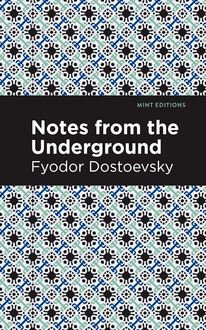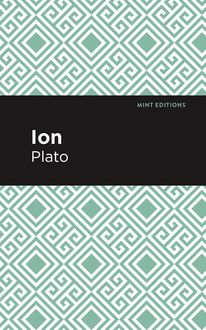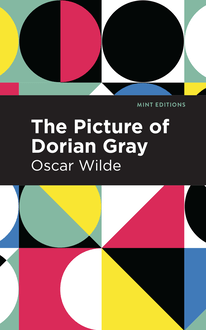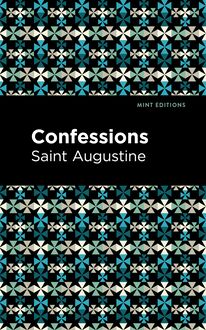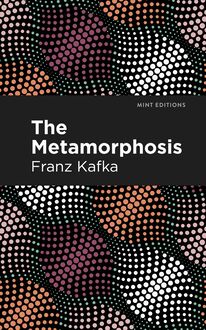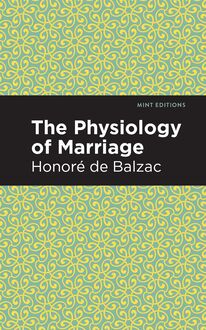-
 Univers
Univers
-
 Ebooks
Ebooks
-
 Livres audio
Livres audio
-
 Presse
Presse
-
 Podcasts
Podcasts
-
 BD
BD
-
 Documents
Documents
-
- Cours
- Révisions
- Ressources pédagogiques
- Sciences de l’éducation
- Manuels scolaires
- Langues
- Travaux de classe
- Annales de BEP
- Etudes supérieures
- Maternelle et primaire
- Fiches de lecture
- Orientation scolaire
- Méthodologie
- Corrigés de devoir
- Annales d’examens et concours
- Annales du bac
- Annales du brevet
- Rapports de stage
La lecture à portée de main
Vous pourrez modifier la taille du texte de cet ouvrage
Découvre YouScribe en t'inscrivant gratuitement
Je m'inscrisDécouvre YouScribe en t'inscrivant gratuitement
Je m'inscrisEn savoir plus
Vous pourrez modifier la taille du texte de cet ouvrage
En savoir plus

Description
“It may seem paradoxical to speak of such insights as liberating, or to find in the Underground Man’s impassioned rejection of rational humanitarianism a call to arms. Yet each age we live through as individuals demands a certain kind of book- just as each era thieves the last with a magpie’s lust for the gewgaws of thought. Oddly enough, now I come to look at Notes again- and examine it in the round- I discover that my revised impression of it as a text at once jejune and cynical, callow as well as wise, is not, perhaps, too far from reality.” -Will Self
““(Dostoevsky)... is the man more than any other who has created modern prose, and intensified it to its present-day pitch.” -James Joyce
Notes from the Underground is Fyodor Dostoevsky’s ninth novel, and considered to be one of the first examples of the existential novel. In this radically inventive work, an alienated former minor administrator in nineteenth-century Russia has broken away from society and withdrawn into an underground identity. With its piercing insight into political, social, and moral issues, this classic is one of the most provocative work of literature ever written.
In the first half of the novel, the unnamed narrator, a cynical recluse in 1860’s St. Petersburg, attacks the ideologies of inherent laws of self-interest; he is crippled with self-loathing, and bound by his contempt of certain political attitudes of his day. He welcomes any psychic or physical pain in his life as he believe it rails against the complacency of modern society. The second half, entitled “Apropos of the Wet Snow”, the narrator relates his alienated relationships he experiences with others, including old school chums and a prostitute named Liza, who is only demeaned in his misanthropic mind. A singular document of the depravity of human consciousness, this is one of the most powerful pieces of literature ever written.
With an eye-catching new cover, and professionally typeset manuscript, this edition of Notes from the Underground is both modern and readable.
Sujets
Informations
| Publié par | Mint Editions |
| Date de parution | 06 octobre 2020 |
| Nombre de lectures | 4 |
| EAN13 | 9781513268149 |
| Langue | English |
| Poids de l'ouvrage | 2 Mo |
Informations légales : prix de location à la page 0,0400€. Cette information est donnée uniquement à titre indicatif conformément à la législation en vigueur.
Extrait
Notes from the Underground
Fyodor Dostoevsky
Notes from the Underground was first published in 1864.
This edition published by Mint Editions 2020.
ISBN 9781513266190 | E-ISBN 9781513268149
Published by Mint Editions®
minteditionbooks.com
Publishing Director: Jennifer Newens
Project Manager: Gabrielle Maudiere
Design & Production: Rachel Lopez Metzger
Translated by: Constance Garnett
Typesetting: Westchester Publishing Services
C ONTENTS
Part 1
Chapter 1
Chapter 2
Chapter 3
Chapter 4
Chapter 5
Chapter 6
Chapter 7
Chapter 8
Chapter 9
Chapter 10
Chapter 11
Part 2
Chapter 1
Chapter 2
Chapter 3
Chapter 4
Chapter 5
Chapter 6
Chapter 7
Chapter 8
Chapter 9
Chapter 10
PART 1
Chapter 1
I am a sick man… I am a spiteful man. I am an unattractive man. I believe my liver is diseased. However, I know nothing at all about my disease, and do not know for certain what ails me. I don’t consult a doctor for it, and never have, though I have a respect for medicine and doctors. Besides, I am extremely superstitious, sufficiently so to respect medicine, anyway (I am well-educated enough not to be superstitious, but I am superstitious). No, I refuse to consult a doctor from spite. That you probably will not understand. Well, I understand it, though. Of course, I can’t explain who it is precisely that I am mortifying in this case by my spite: I am perfectly well aware that I cannot “pay out” the doctors by not consulting them; I know better than anyone that by all this I am only injuring myself and no one else. But still, if I don’t consult a doctor it is from spite. My liver is bad, well—let it get worse!
I have been going on like that for a long time—twenty years. Now I am forty. I used to be in the government service, but am no longer. I was a spiteful official. I was rude and took pleasure in being so. I did not take bribes, you see, so I was bound to find a recompense in that, at least. (A poor jest, but I will not scratch it out. I wrote it thinking it would sound very witty; but now that I have seen myself that I only wanted to show off in a despicable way, I will not scratch it out on purpose!)
When petitioners used to come for information to the table at which I sat, I used to grind my teeth at them, and felt intense enjoyment when I succeeded in making anybody unhappy. I almost did succeed. For the most part they were all timid people—of course, they were petitioners. But of the uppish ones there was one officer in particular I could not endure. He simply would not be humble, and clanked his sword in a disgusting way. I carried on a feud with him for eighteen months over that sword. At last I got the better of him. He left off clanking it. That happened in my youth, though.
But do you know, gentlemen, what was the chief point about my spite? Why, the whole point, the real sting of it lay in the fact that continually, even in the moment of the acutest spleen, I was inwardly conscious with shame that I was not only not a spiteful but not even an embittered man, that I was simply scaring sparrows at random and amusing myself by it. I might foam at the mouth, but bring me a doll to play with, give me a cup of tea with sugar in it, and maybe I should be appeased. I might even be genuinely touched, though probably I should grind my teeth at myself afterwards and lie awake at night with shame for months after. That was my way.
I was lying when I said just now that I was a spiteful official. I was lying from spite. I was simply amusing myself with the petitioners and with the officer, and in reality I never could become spiteful. I was conscious every moment in myself of many, very many elements absolutely opposite to that. I felt them positively swarming in me, these opposite elements. I knew that they had been swarming in me all my life and craving some outlet from me, but I would not let them, would not let them, purposely would not let them come out. They tormented me till I was ashamed: they drove me to convulsions and—sickened me, at last, how they sickened me! Now, are not you fancying, gentlemen, that I am expressing remorse for something now, that I am asking your forgiveness for something? I am sure you are fancying that… However, I assure you I do not care if you are…
It was not only that I could not become spiteful, I did not know how to become anything; neither spiteful nor kind, neither a rascal nor an honest man, neither a hero nor an insect. Now, I am living out my life in my corner, taunting myself with the spiteful and useless consolation that an intelligent man cannot become anything seriously, and it is only the fool who becomes anything. Yes, a man in the nineteenth century must and morally ought to be pre-eminently a characterless creature; a man of character, an active man is pre-eminently a limited creature. That is my conviction of forty years. I am forty years old now, and you know forty years is a whole lifetime; you know it is extreme old age. To live longer than forty years is bad manners, is vulgar, immoral. Who does live beyond forty? Answer that, sincerely and honestly I will tell you who do: fools and worthless fellows. I tell all old men that to their face, all these venerable old men, all these silver-haired and reverend seniors! I tell the whole world that to its face! I have a right to say so, for I shall go on living to sixty myself. To seventy! To eighty! … Stay, let me take breath…
You imagine no doubt, gentlemen, that I want to amuse you. You are mistaken in that, too. I am by no means such a mirthful person as you imagine, or as you may imagine; however, irritated by all this babble (and I feel that you are irritated) you think fit to ask me who I am—then my answer is, I am a collegiate assessor. I was in the service that I might have something to eat (and solely for that reason), and when last year a distant relation left me six thousand roubles in his will I immediately retired from the service and settled down in my corner. I used to live in this corner before, but now I have settled down in it. My room is a wretched, horrid one in the outskirts of the town. My servant is an old country-woman, ill-natured from stupidity, and, moreover, there is always a nasty smell about her. I am told that the Petersburg climate is bad for me, and that with my small means it is very expensive to live in Petersburg. I know all that better than all these sage and experienced counsellors and monitors… But I am remaining in Petersburg; I am not going away from Petersburg! I am not going away because… ech! Why, it is absolutely no matter whether I am going away or not going away.
But what can a decent man speak of with most pleasure?
Answer: Of himself.
Well, so I will talk about myself.
Chapter 2
I want now to tell you, gentlemen, whether you care to hear it or not, why I could not even become an insect. I tell you solemnly, that I have many times tried to become an insect. But I was not equal even to that. I swear, gentlemen, that to be too conscious is an illness—a real thorough-going illness. For man’s everyday needs, it would have been quite enough to have the ordinary human consciousness, that is, half or a quarter of the amount which falls to the lot of a cultivated man of our unhappy nineteenth century, especially one who has the fatal ill-luck to inhabit Petersburg, the most theoretical and intentional town on the whole terrestrial globe. (There are intentional and unintentional towns.) It would have been quite enough, for instance, to have the consciousness by which all so-called direct persons and men of action live. I bet you think I am writing all this from affectation, to be witty at the expense of men of action; and what is more, that from ill-bred affectation, I am clanking a sword like my officer. But, gentlemen, whoever can pride himself on his diseases and even swagger over them?
Though, after all, everyone does do that; people do pride themselves on their diseases, and I do, may be, more than anyone. We will not dispute it; my contention was absurd. But yet I am firmly persuaded that a great deal of consciousness, every sort of consciousness, in fact, is a disease. I stick to that. Let us leave that, too, for a minute. Tell me this: why does it happen that at the very, yes, at the very moments when I am most capable of feeling every refinement of all that is “sublime and beautiful,” as they used to say at one time, it would, as though of design, happen to me not only to feel but to do such ugly things, such that… Well, in short, actions that all, perhaps, commit; but which, as though purposely, occurred to me at the very time when I was most conscious that they ought not to be committed. The more conscious I was of goodness and of all that was “sublime and beautiful,” the more deeply I sank into my mire and the more ready I was to sink in it altogether. But the chief point was that all this was, as it were, not accidental in me, but as though it were bound to be so. It was as though it were my most normal condition, and not in the least disease or depravity, so that at last all desire in me to struggle against this depravity passed. It ended by my almost believing (perhaps actually believing) that this was perhaps my normal condition. But at first, in the beginning, what agonies I endured in that struggle! I did not believe it was the same with other people, and all my life I hid this fact about myself as a secret. I was ashamed (even now,
-
 Univers
Univers
-
 Ebooks
Ebooks
-
 Livres audio
Livres audio
-
 Presse
Presse
-
 Podcasts
Podcasts
-
 BD
BD
-
 Documents
Documents
-
Jeunesse
-
Littérature
-
Ressources professionnelles
-
Santé et bien-être
-
Savoirs
-
Education
-
Loisirs et hobbies
-
Art, musique et cinéma
-
Actualité et débat de société
-
Jeunesse
-
Littérature
-
Ressources professionnelles
-
Santé et bien-être
-
Savoirs
-
Education
-
Loisirs et hobbies
-
Art, musique et cinéma
-
Actualité et débat de société
-
Actualités
-
Lifestyle
-
Presse jeunesse
-
Presse professionnelle
-
Pratique
-
Presse sportive
-
Presse internationale
-
Culture & Médias
-
Action et Aventures
-
Science-fiction et Fantasy
-
Société
-
Jeunesse
-
Littérature
-
Ressources professionnelles
-
Santé et bien-être
-
Savoirs
-
Education
-
Loisirs et hobbies
-
Art, musique et cinéma
-
Actualité et débat de société
- Cours
- Révisions
- Ressources pédagogiques
- Sciences de l’éducation
- Manuels scolaires
- Langues
- Travaux de classe
- Annales de BEP
- Etudes supérieures
- Maternelle et primaire
- Fiches de lecture
- Orientation scolaire
- Méthodologie
- Corrigés de devoir
- Annales d’examens et concours
- Annales du bac
- Annales du brevet
- Rapports de stage
